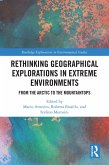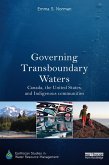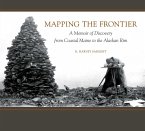Concentrating on mountaineering and Arctic exploration between 1880 - 1960, contributors to this volume show how environmental marginalisation has been discursively implemented and materially generated by foreign and local actors. It examines to what extent the status and identity of extreme environments has changed during modern times, moving them from periphery to the centre and discarding their marginality. The first section looks at ways in which societies have framed remoteness, through the lens of commercialization, colonialism, knowledge production and sport, while the second examines the reverse transfer, focusing on how extreme nature has influenced societies, through international network creation, political consensus and identity building. This collection enriches the historical understanding of exploration by adopting a critical approach and offering multidimensional and multi-gaze reconstructions.
This book is essential reading for students and scholars interested in environmental history, geography, colonial studies and the environmental humanities.
Dieser Download kann aus rechtlichen Gründen nur mit Rechnungsadresse in A, B, BG, CY, CZ, D, DK, EW, E, FIN, F, GR, HR, H, IRL, I, LT, L, LR, M, NL, PL, P, R, S, SLO, SK ausgeliefert werden.









